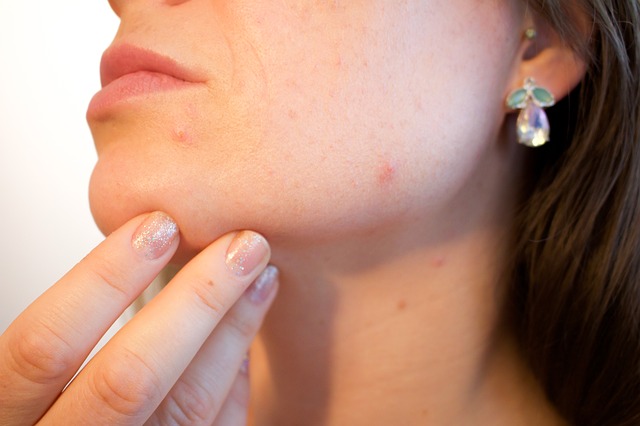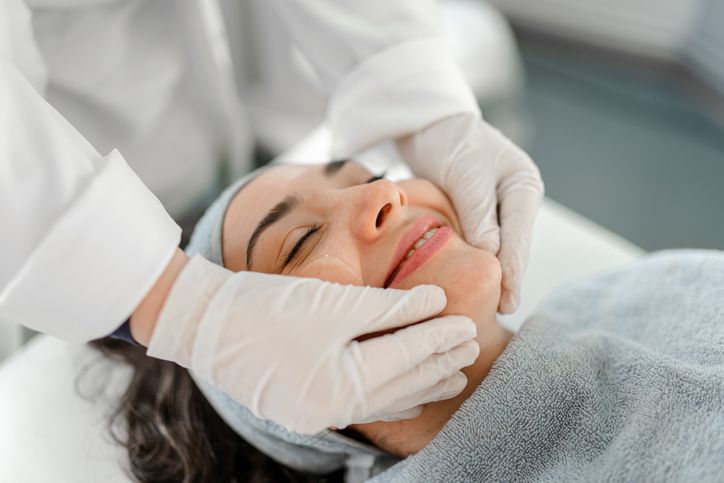Impact of Diet on Folliculitis: Nourish Your Skin Naturally
The impact of diet on folliculitis is a fascinating topic that has been gaining attention in the beauty and health communities. For beauticians, understanding the connection between diet and skin conditions like folliculitis is essential to provide clients with comprehensive care. Folliculitis, an inflammation of the hair follicles, can be exacerbated by certain dietary choices. This article delves into how diet affects folliculitis and what beauticians can do to guide their clients toward clearer, healthier skin.

Understanding Folliculitis
Folliculitis is a common skin condition characterized by small, red bumps around hair follicles. It can be caused by bacterial or fungal infections, irritation, or blockage of the follicles. While many external treatments are available, addressing the internal factors like diet can significantly impact the condition's severity and frequency. Understanding the root causes of folliculitis can help beauticians recommend holistic treatments to their clients. For a more detailed overview of folliculitis, you can visit WebMD.
The Diet-Skin Connection
Diet plays a crucial role in skin health. Consuming a balanced diet rich in vitamins, minerals, and antioxidants can improve skin texture, reduce inflammation, and enhance overall skin health. On the other hand, a diet high in sugars and processed foods can lead to increased inflammation and skin issues, including folliculitis. Beauticians should consider discussing dietary habits with their clients, as dietary changes can complement topical treatments for folliculitis.
Foods to Avoid
Certain foods are known to trigger or worsen folliculitis. High-glycemic foods, such as white bread, pastries, and sugary snacks, can increase insulin levels and inflammation, potentially leading to outbreaks. Additionally, dairy products have been linked to acne and similar skin conditions, making them worth monitoring for those prone to folliculitis. Beauticians can advise their clients to limit these foods and observe any changes in their skin condition.
Foods to Embrace
Incorporating anti-inflammatory foods into one's diet can have a positive impact on folliculitis. Omega-3 fatty acids, found in fish like salmon and in flaxseeds, can help reduce inflammation. Fruits and vegetables, rich in antioxidants, vitamins, and minerals, support overall skin health. Encourage clients to include leafy greens, berries, and nuts in their daily meals. For more tips on skincare and nutrition, you can explore exfoliation tips for folliculitis-prone skin.
Supplements and Their Role
Sometimes, diet alone might not provide all the necessary nutrients for optimal skin health. Supplements such as zinc, vitamin D, and probiotics can aid in reducing inflammation and improving skin conditions like folliculitis. Beauticians can suggest that clients consult with healthcare professionals to determine the appropriate supplements for their needs.
Probiotics for Skin Health
Probiotics, known for their role in supporting gut health, can also benefit the skin. They help balance the gut microbiome, which can reduce inflammation and improve skin conditions. Introducing probiotic-rich foods like yogurt, kefir, and fermented vegetables can be beneficial for clients struggling with folliculitis.
Integrating Diet into Beauty Consultations
As a beautician, integrating diet advice into your consultations can set you apart and provide added value to your clients. By understanding the impact of diet on folliculitis, you can offer a holistic approach to skin care that combines external treatments with internal health strategies. For additional insights, consider recommending resources like choosing the right moisturizer for folliculitis.
Conclusion
The impact of diet on folliculitis cannot be overstated. A balanced diet, rich in anti-inflammatory foods, and the right supplements can significantly improve this condition. Beauticians have the opportunity to guide their clients in making dietary changes that not only enhance their skin but also their overall well-being. By considering the role of diet in skin health, beauticians can offer a comprehensive approach to treating folliculitis that addresses both internal and external factors.

FAQ
What foods should be avoided to prevent folliculitis?
Avoid high-glycemic foods, such as sugary snacks and white bread, as well as dairy products, which can exacerbate folliculitis.
Are there any supplements that help with folliculitis?
Yes, supplements such as zinc, vitamin D, and probiotics can help reduce inflammation and improve skin health.
How can beauticians incorporate diet advice into consultations?
Beauticians can educate clients on the connection between diet and skin health, suggest dietary changes, and recommend resources for further information.

